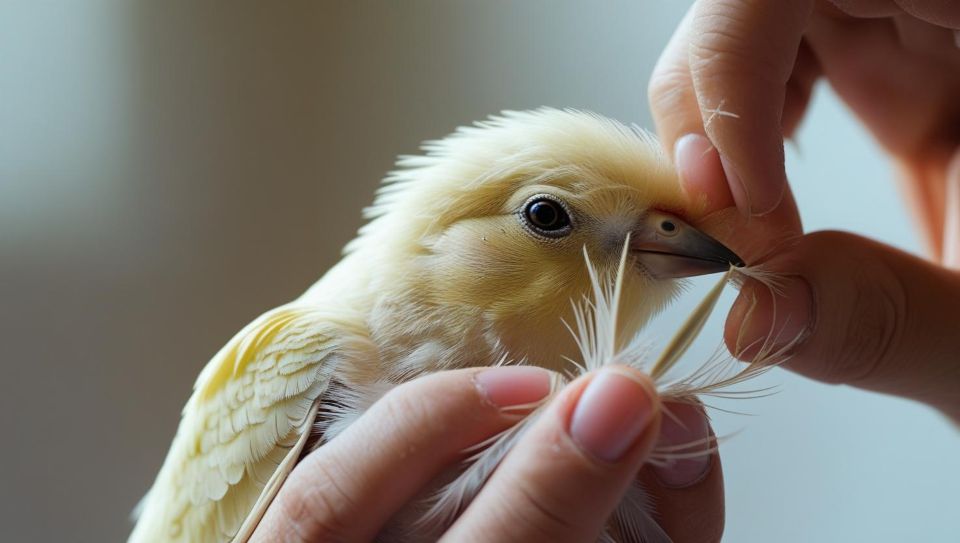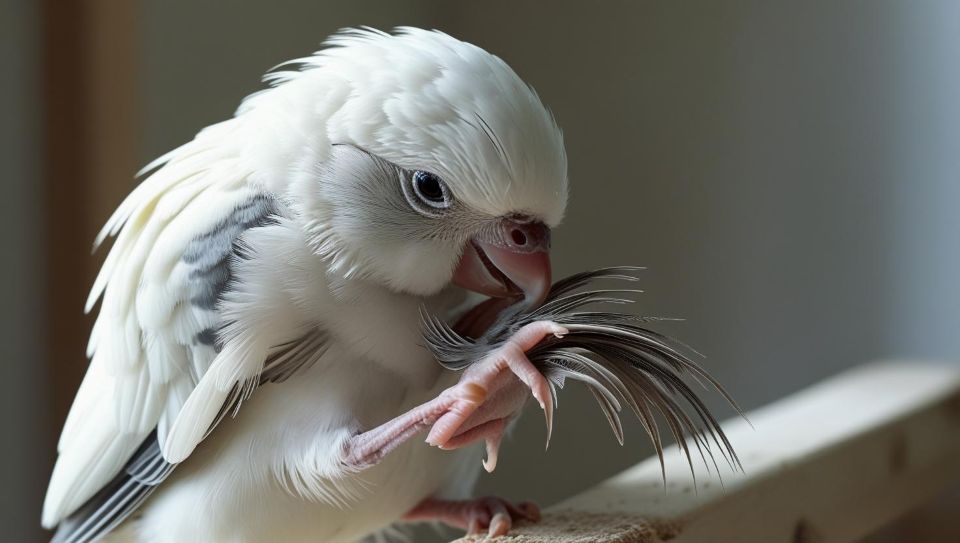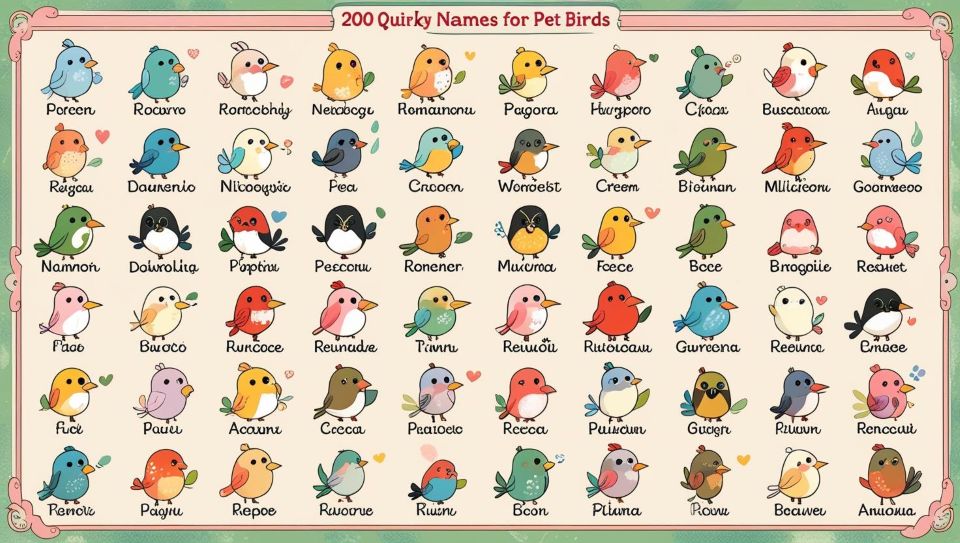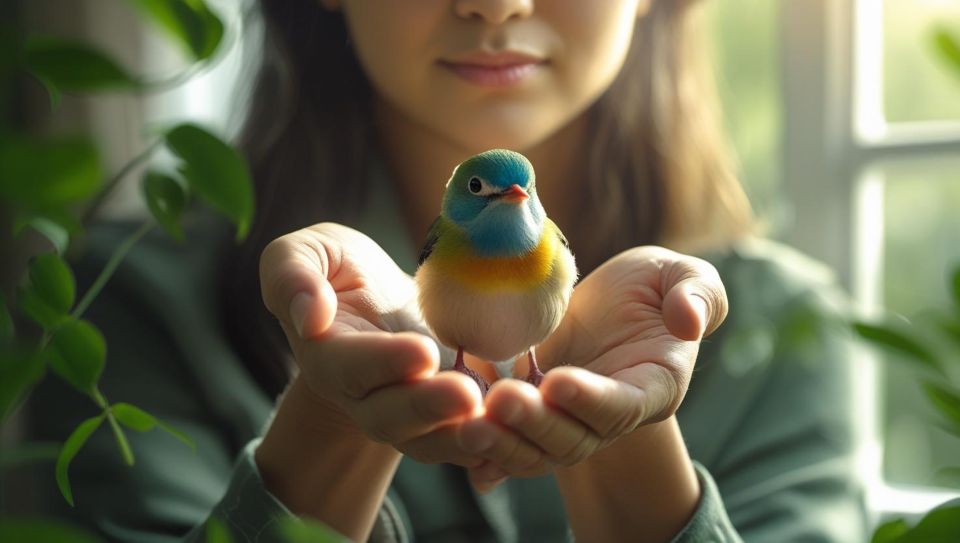If you’ve ever noticed your bird plucking its feathers—sometimes to the point of leaving bald spots or even causing open wounds—you’re not alone. This behavior, known as feather plucking or feather destructive behavior, isn’t just quirky or cosmetic; it’s often a warning sign that something’s not quite right.
Sure, birds preen to keep their feathers clean and aligned—that’s totally normal. But when grooming turns into obsessive pulling or biting, it’s time to pay attention. Let’s dive into the most common reasons why birds pluck their feathers and how you can help them stop.
Health Issues: Is Something Physically Wrong?
One of the first things to check is whether a medical issue is behind your bird’s feather plucking. A lot of physical ailments can cause discomfort, leading birds to over-groom in an attempt to self-soothe.
- Skin irritations from food allergies, airborne particles (like dust or pollen), or even materials in the cage can make a bird’s skin itchy or inflamed.
- Parasites such as mites or lice are another common culprit. These tiny pests burrow into feathers or skin, causing intense itching and irritation.
- Nutritional deficiencies are a big deal, too. If your bird isn’t getting enough vitamin A, omega-3 fatty acids, or protein, their feathers may become brittle and uncomfortable.
- Fungal or bacterial infections, and hormonal imbalances (especially in breeding birds), can also cause excessive plucking.
💡 Pro tip: If you see feather loss or skin irritation, don’t wait. Book an appointment with an avian vet to rule out underlying health concerns.
Environmental Stress: When Your Bird’s World Feels Off
Birds are super sensitive to their surroundings. Changes or disturbances in their environment can lead to emotional distress—and plucking is often how that stress shows up.
Some common environmental stressors include:
- Moving homes, rearranging furniture, or introducing a new pet or family member
- Lack of enrichment—a bored bird in a tiny, empty cage has nothing to do but pluck
- Too much noise or chaos from TVs, music, or household traffic
- Temperature or humidity issues, like drafts or dry air
🐦 Tip: Create a calm, stable environment with fun toys, perches, and a daily routine. A happy bird is much less likely to pluck.
Emotional Triggers: Loneliness, Grief, and Habitual Behavior
Feather plucking isn’t always about physical pain—it can also be tied to your bird’s emotions. Many social species, like parrots, cockatiels, and budgies, need regular interaction. When they feel lonely or ignored, they may start to pluck.
Birds can also grieve. If a feathered friend—or even a human companion—passes away or moves out, your bird might start pulling feathers out of sadness.
And sometimes, a temporary stressor (like moving) can trigger the behavior, but it sticks around long after the situation improves. Plucking can become a comforting habit, even when the original reason is gone.
Mating and Nesting Instincts: Natural Behavior That Can Be Misleading
Not all feather plucking is a red flag—sometimes it’s just nature doing its thing. For many species, especially female birds, pulling feathers is part of their instinctual nesting behavior. It’s not a sign of illness or distress, but rather a built-in biological response to changing hormone levels.
Why Do Birds Pluck During Mating Season?
During mating season, your bird’s body ramps up hormone production, especially if they’re exposed to spring-like conditions: longer daylight hours, warmer temperatures, or even soft nesting materials in the cage. This hormonal surge can trigger behaviors like:
- Seeking out dark, cozy spaces
- Regurgitating food
- Increased vocalization
- And yes—plucking feathers from the chest or abdomen to line an imaginary nest
This is especially common in parrots, cockatiels, and lovebirds. These species often exhibit strong hormonal behavior even without a mate present. The plucked feathers are used to create a soft, warm lining, just like they would in the wild.

How to Tell if It’s Nesting or a Bigger Issue
It can be tricky to tell the difference between natural nesting plucking and destructive feather picking. Here’s what to watch for:
- Plucking is localized—usually around the belly or legs
- No signs of bleeding, raw skin, or widespread baldness
- Your bird seems active and otherwise healthy
In these cases, it’s often temporary and harmless. But if the feather loss spreads, becomes aggressive, or continues for weeks, it’s time to dig deeper.
Managing Hormonal Trigge
While you can’t (and shouldn’t) stop natural instincts, there are ways to reduce hormonal stimulation if it’s leading to chronic plucking:
- Limit exposure to nesting cues—remove boxes, shreddable bedding, or tent-like spaces
- Keep daylight hours consistent to avoid triggering breeding mode
- Avoid petting around the back and underwings, which can be sexually stimulating for some birds
- Introduce more physical activity and mental stimulation to shift focus away from nesting
And most importantly—don’t punish the behavior. Remember, it’s not a discipline issue. It’s your bird’s way of responding to nature.
Boredom and Lack of Stimulation: A Silent Culprit
Birds are incredibly intelligent and curious animals. If your bird doesn’t have anything to do, boredom can set in fast—and feather plucking might be how they pass the time.
Ask yourself:
- Does your bird have enough toys or challenges in their cage?
- Are you rotating their toys to keep things interesting?
- Do they get enough time outside the cage or chances to interact?
A mentally stimulated bird is a healthier, happier bird. Try offering puzzle toys, mirrors, or even safe foraging activities to reduce plucking behavior.
Lack of Social Interaction: Your Bird Needs You
Many birds are flock animals by nature. In the wild, they’d be surrounded by companions all day. When kept as pets, they often rely on humans to fill that social gap.
If your bird spends long hours alone, without attention or communication, they may develop separation anxiety. Over time, that emotional strain can trigger feather plucking as a coping mechanism.
Make sure you’re spending quality time with your bird every day—talking, training, or even just hanging out near their cage. That connection can go a long way in preventing destructive habits.
When Does Feather Plucking Become a Serious Problem?
It’s totally normal for birds to preen—it’s how they stay clean, keep feathers in top shape, and feel good. But when feather plucking becomes obsessive or causes physical harm, it’s a sign that something’s seriously wrong.
Here’s how to tell if your bird’s feather-picking has crossed the line from grooming to a health or behavior concern:
- Are you seeing bald patches or areas with missing feathers?
- Has the skin become red, irritated, or bleeding?
- Is your bird constantly focused on one area, picking at it repeatedly?
- Do they seem restless, anxious, or withdrawn?
If the answer is yes to any of these, it’s time to take action.
✅ First, schedule a visit with an avian vet to rule out medical issues like infections, parasites, or nutritional deficiencies.
✅ Next, assess your bird’s environment and lifestyle. Are they bored? Stressed? Lacking attention or stimulation?
✅ Finally, if the plucking continues—even after physical and environmental needs are addressed—consider working with an avian behaviorist. These experts can create a plan using positive reinforcement, new toys, and environmental changes to help your bird recover.
Feather plucking isn’t just frustrating—it’s often your bird’s way of crying out for help. The good news? With patience, love, and the right support, most birds can bounce back and regrow those beautiful feath



